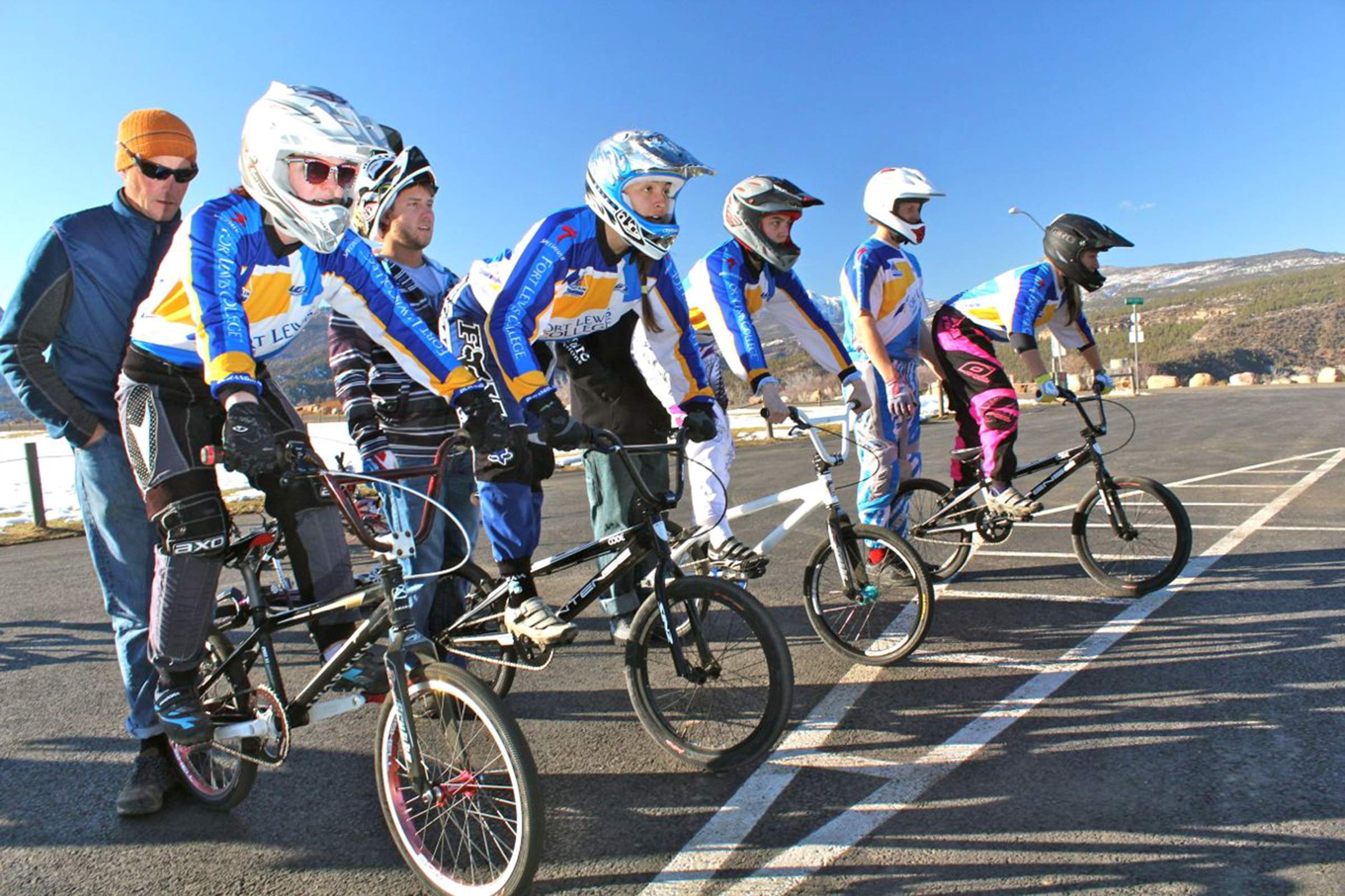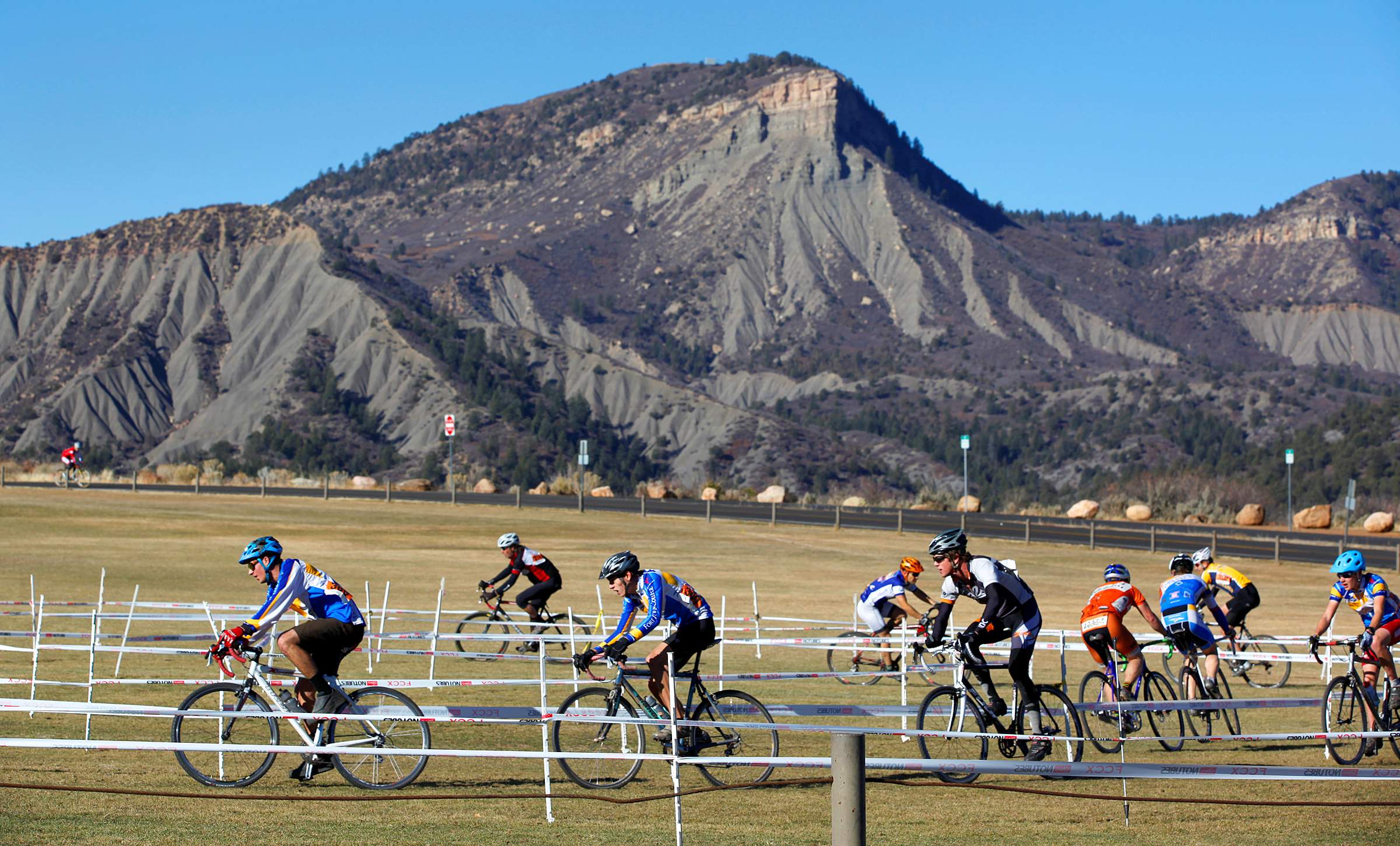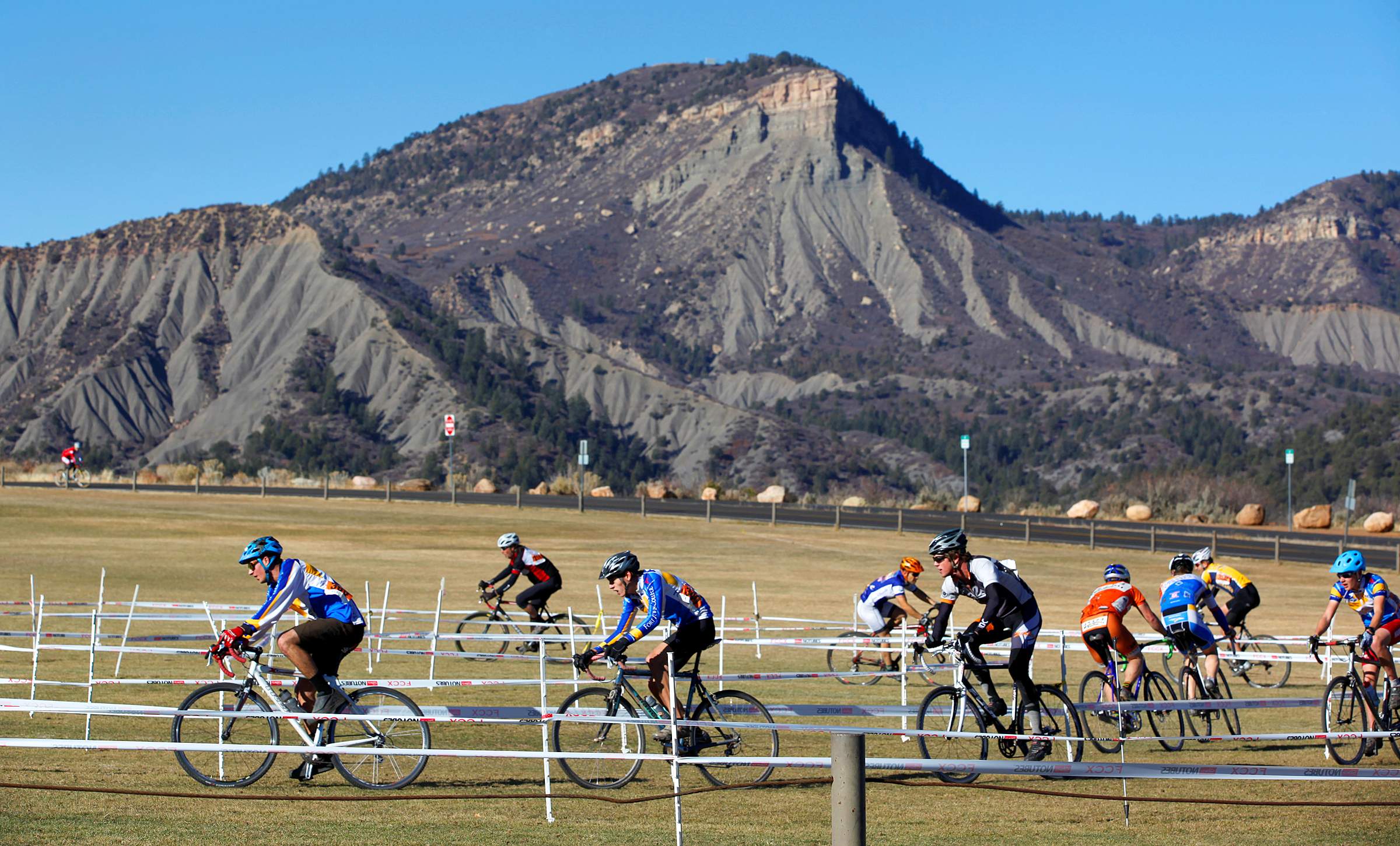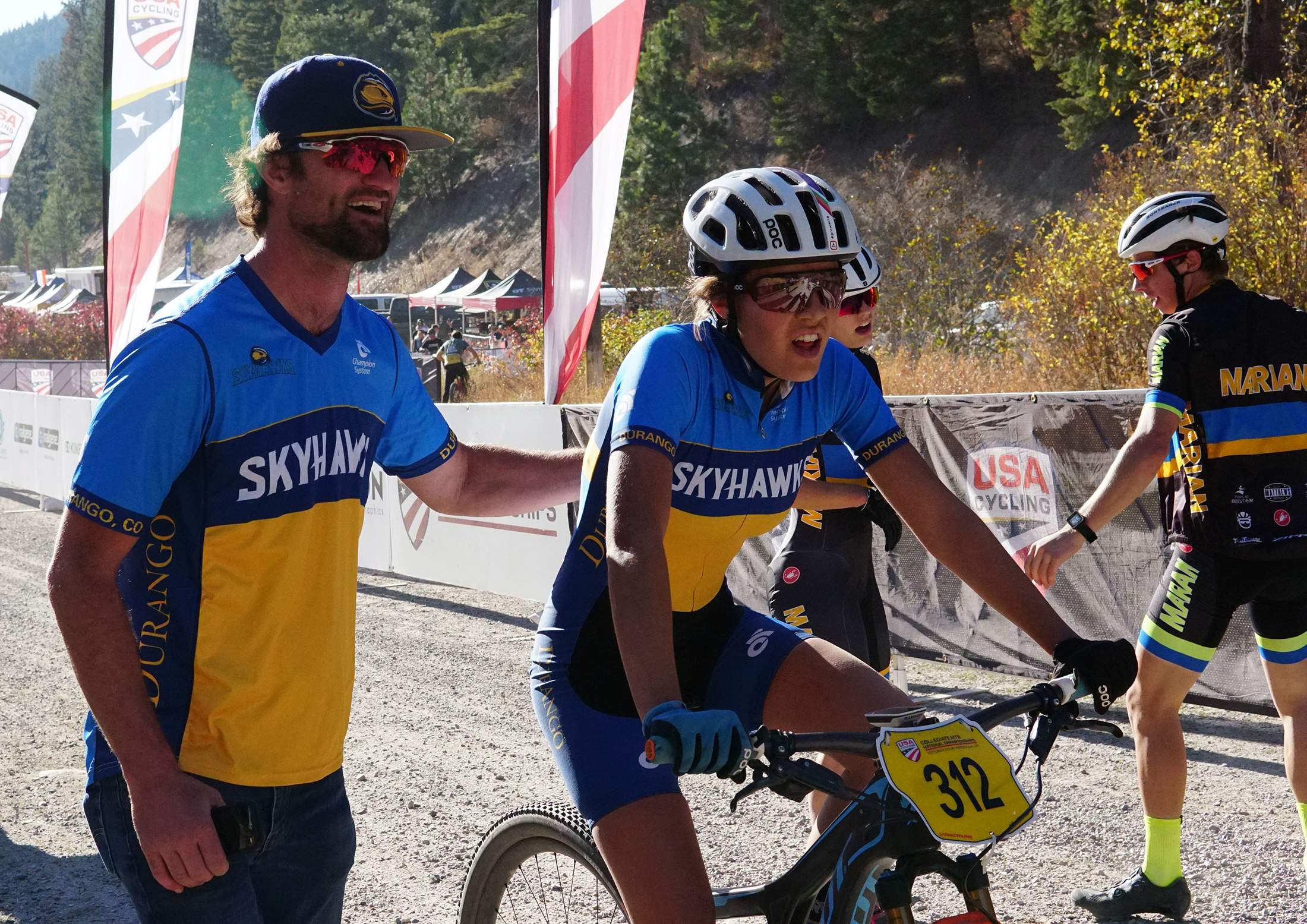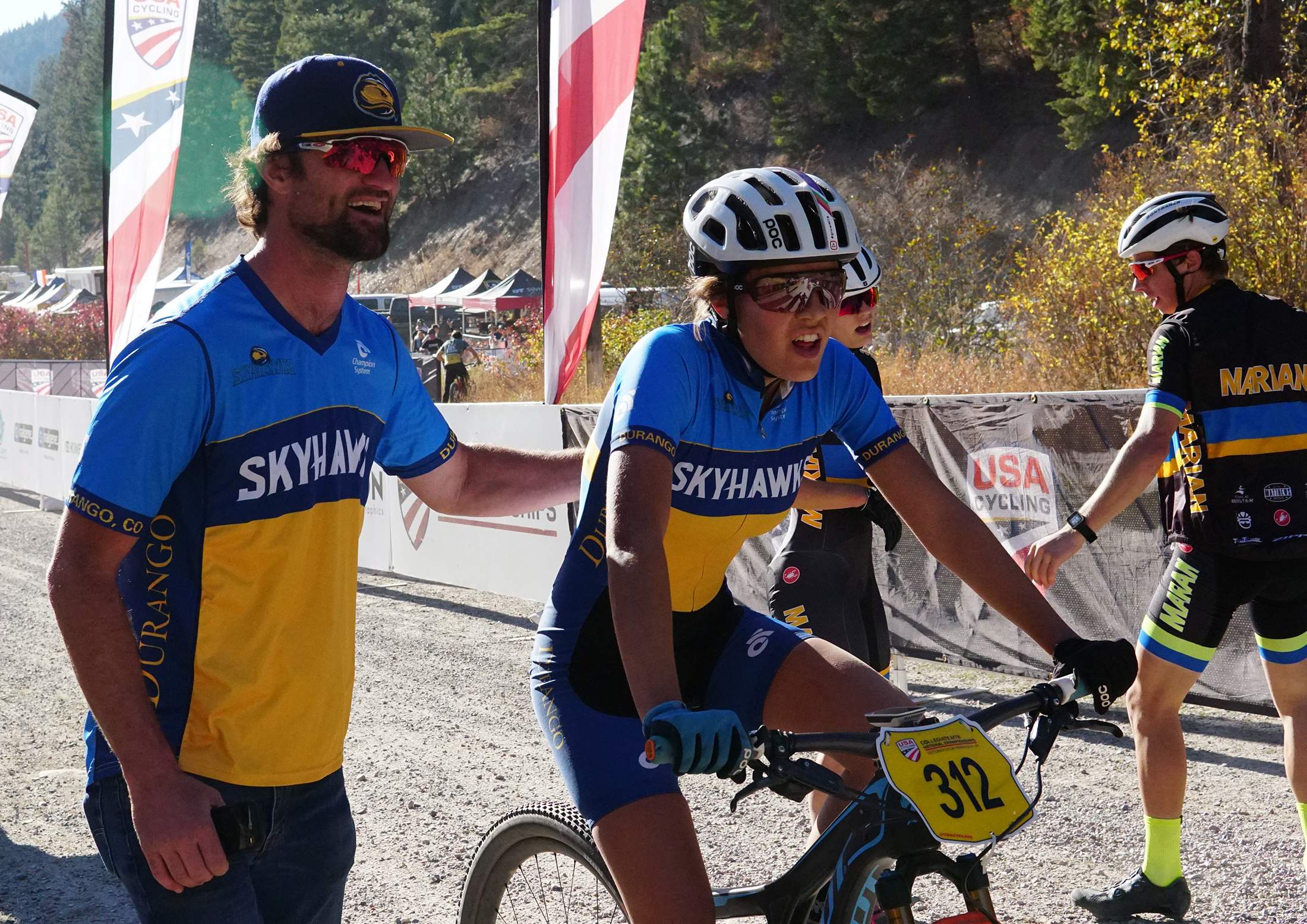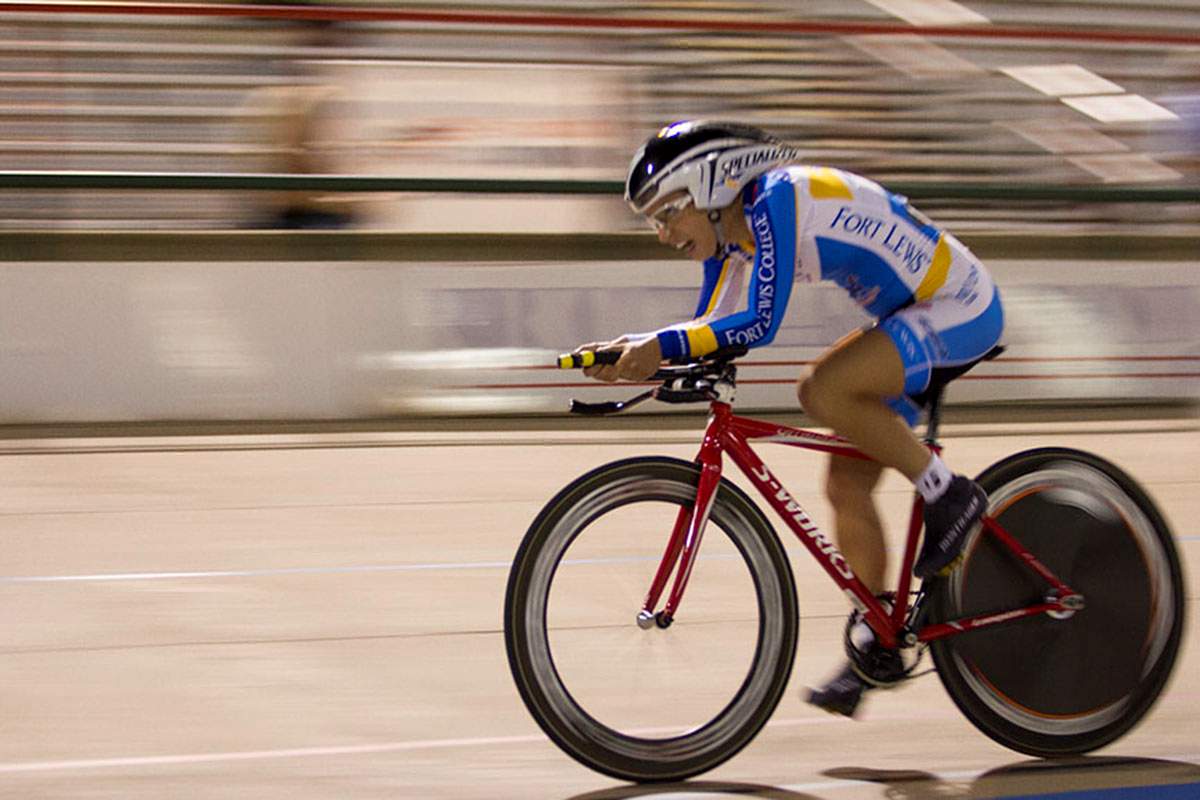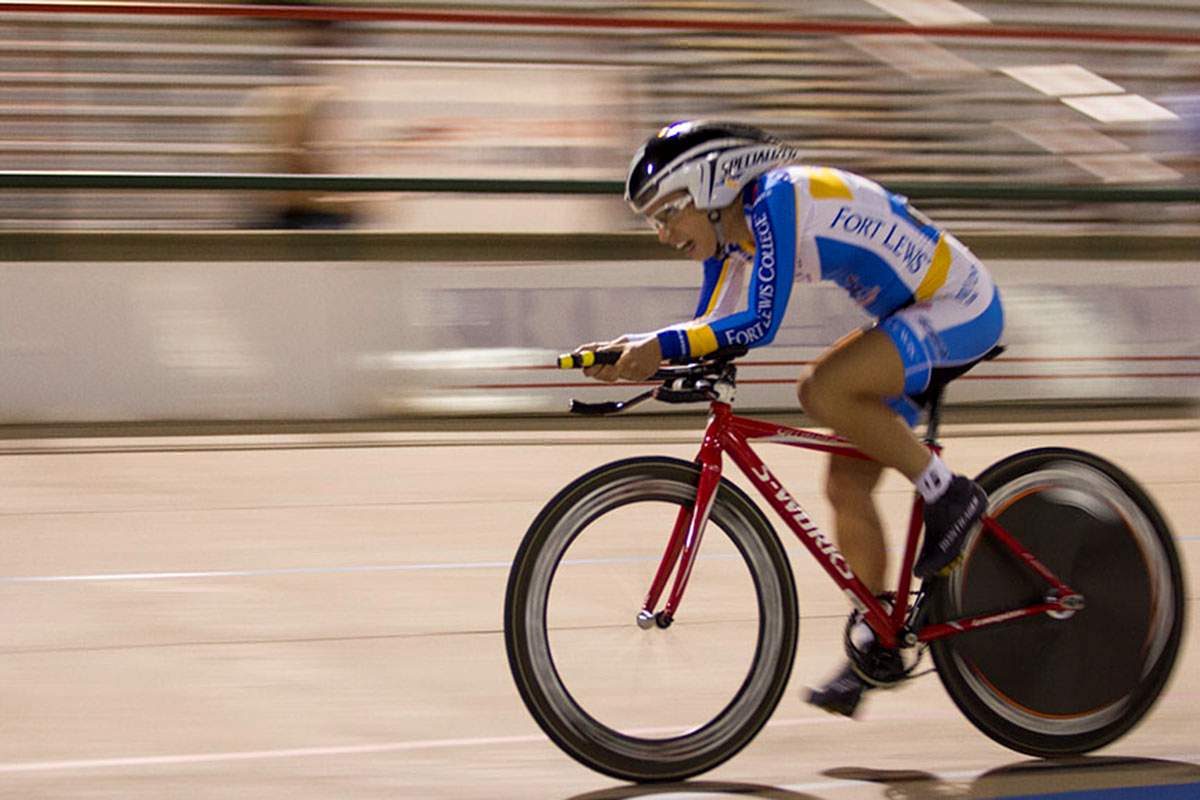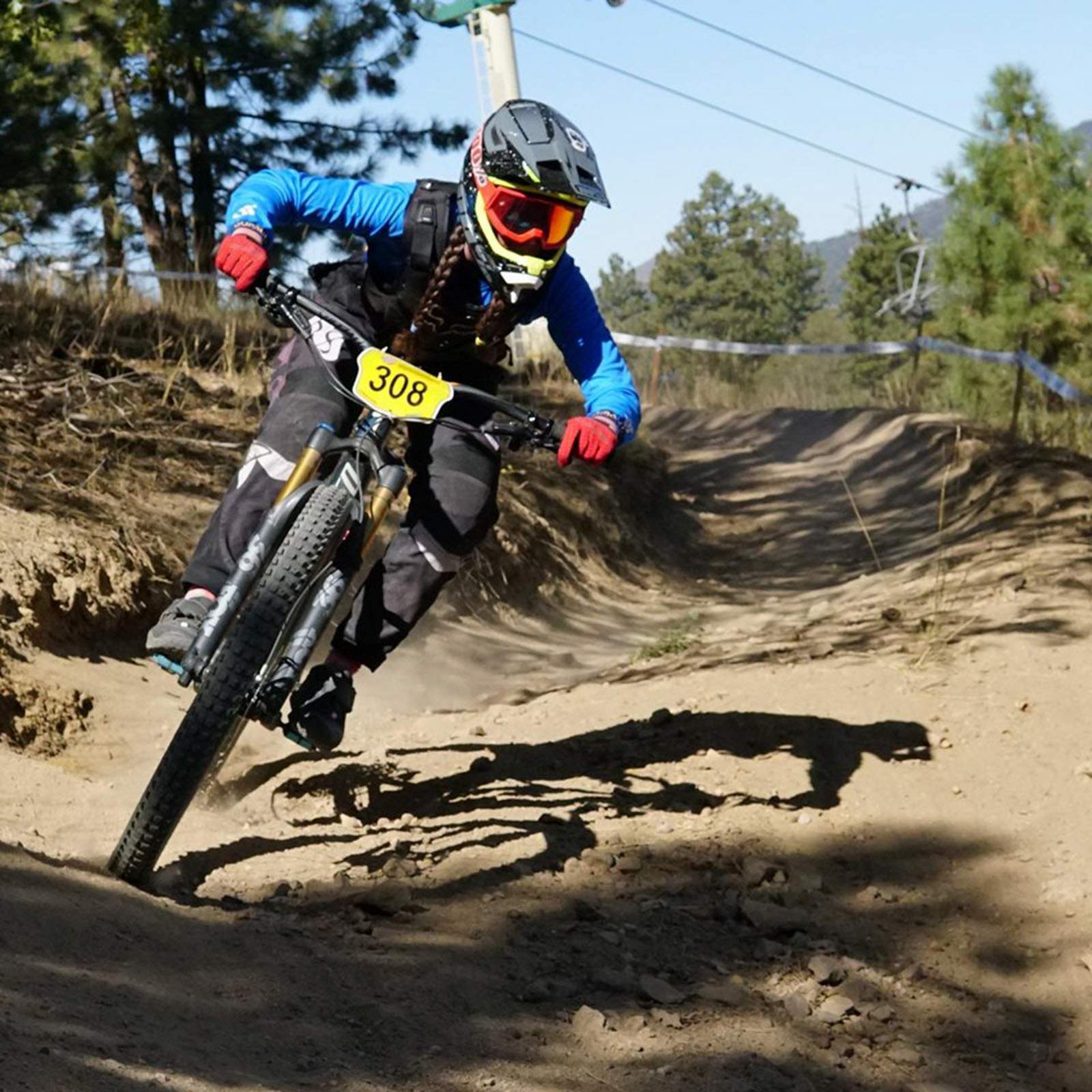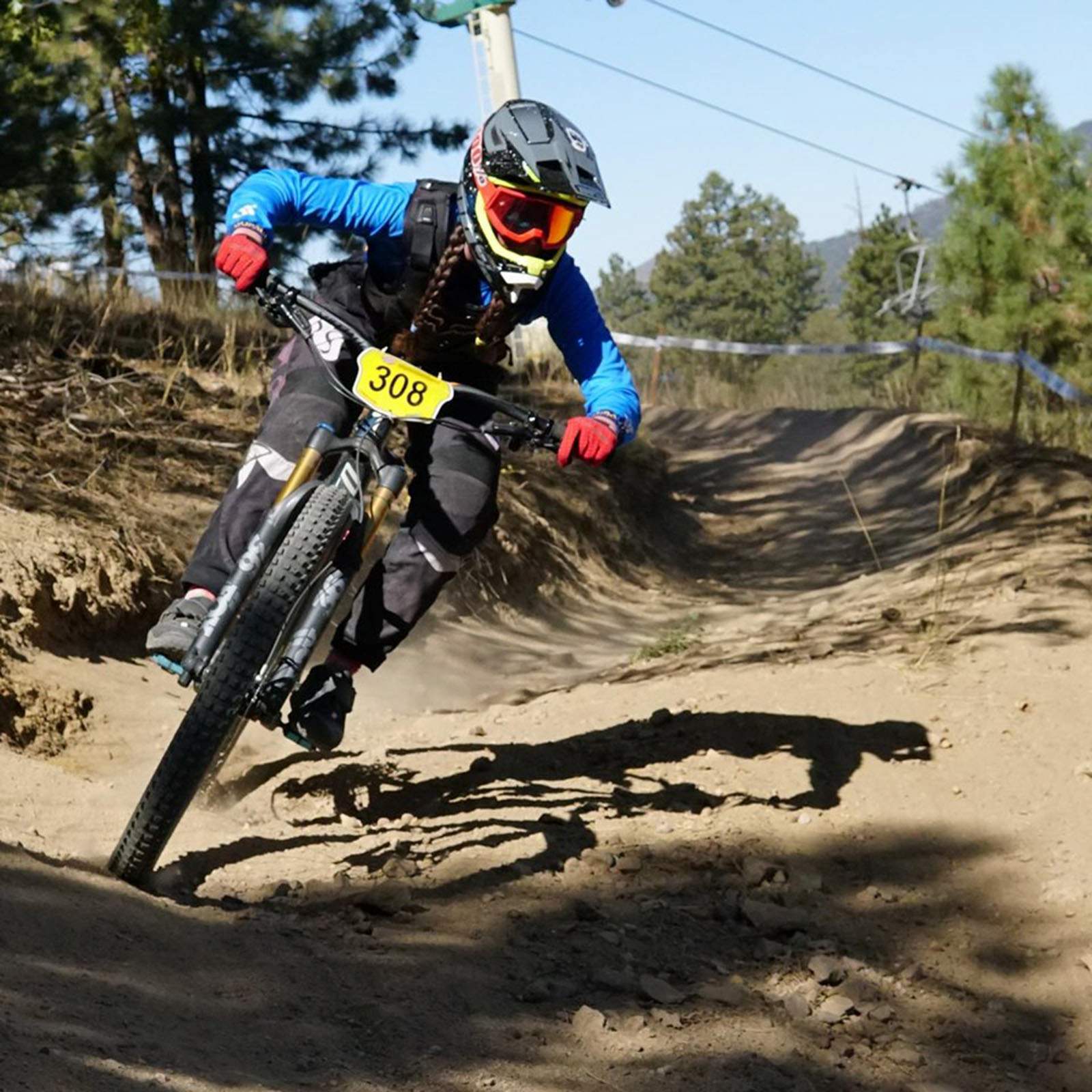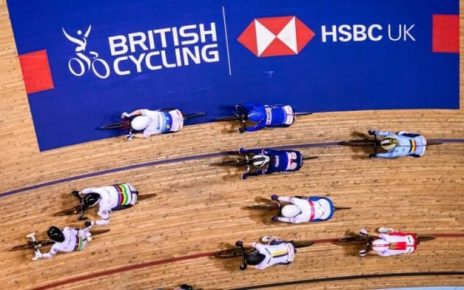The Fort Lewis College cycling program took more than a 28% cut as the college moved to trim $1.85 million from the general fund budget.
FLC cycling, which has won 24 USA Cycling collegiate national championships across all disciplines and has produced Olympians Todd Wells and Howard Grotts along with a long list of individual national champions, was rocked by the budget cuts last week. Immediate actions were made to meet the budget shortfall, including the elimination of the BMX and track cycling teams, two disciplines in which FLC has never won a team national championship.
“It’s a pretty big cut,” FLC cycling director Dave Hagen said. “It led definitely to some changes in the way we’ve operated in the past. We feel very fortunate that we’ve been able to operate the way we have for so many years, but we gotta deal with the reality of the situation and do our part to help the college and the community. We’re just doing what everyone else had to do at the college with the reduced budget. We’ve now done things so we can operate and spend less money.”
Colorado higher education institutions are faced with tough decisions after the $3.3 billion shortfall to the state’s General Fund. That shortage was caused by the COVID-19 pandemic’s toll on the economy and tax revenue. The Joint Budget Committee handed higher education a $493 million cut statewide, though the federal Coronavirus Aid, Relief and Economic Security Act for higher ed helped offset $450 million.
Still, that $43 million shortfall led to FLC’s need to eliminate $1.85 million from its general fund budget.
Earlier in the week, FLC announced it had laid off 12 employees and furloughed another 11 for the 2020-21 school year. Big cuts came to the Center of Southwest Studies and the Community Concert Hall as well as counseling positions.
FLC’s total general fund budget is $48.6 million. Two-thirds of that comes from tuition fees, while nearly 30% comes from state support.
Funding for the FLC cycling program comes from the general fund. According to Steve Schwartz, the Vice President for Finance & Administration of Fort Lewis College, the cycling program was budgeted to receive $210,000 from the general fund for the 2019-20 school year and now will receive $150,000 for 2020-21. It was only two years ago that FLC received $268,858 from the general fund, so this year’s cuts are actually a second consecutive year of massive declines.
“I am a huge cycling supporter,” Schwartz said. “I was a student at FLC. I didn’t come for the cycling team, but I came to Durango for cycling. Over the years, if cycling had an overage, I’d pick up their overage out of my vice president budget. Cycling has the best coaches for a good reason, but it’s not an inexpensive venture. But we want to keep the best coaches, have folks travel, but maybe we don’t have certain disciplines or instead of sending every student to every event, maybe we limit some traveling.
“When you look at the stuff the college is going through right now as a result of COVID-19, it’s horrible. When COVID started in January or February, we were looking at a 7% increase to higher education, and now we are looking at a 58% decrease to funding. It caused us to look at a lot of different things and how we can continue to do what we do, excel where we want to excel but how to do it differently from a financial perspective.”
‘Funded like nobody else in America’The FLC cycling program has been one of the best-funded collegiate cycling programs in the nation for a long time and has more funding than FLC’s NCAA sports.
On top of the money it receives from the general fund and fundraising efforts, it also receives money allocated from student and club sports fees. That money fluctuates depending on enrollment and participation. During the past five years, FLC cycling has received between $43,000 and $53,000 per year from student fees, Schwartz said.
The proposed 2020-21 budget calls for FLC to received $38,118 from student fees, down from $43,720 last year, and $36,000 from program participation, down from $45,000 last year.
FLC cycling’s expenditures included $195,833 to coach salaries and benefits last year – an all-time high. That number is proposed to be cut to $145,869 this year.
FLC cycling regularly has anywhere from 120 to 140 student-athletes who participate. Student-athletes make up roughly 10% of the FLC student body. That is more than any NCAA sports at FLC, including football.
The 14 NCAA Division II sports at FLC received a total cut of $127,000 from the general fund budget, a cut of 7.5% for each program. Cycling is not an NCAA sport and falls under the club sports designation, and its money does not go through the athletics department.
“Cycling has always been independent of athletic funding,” said FLC athletic director Brandon Leimbach. “The biggest misconception is that when people hear cycling is getting cut that they think that money is going to basketball or football instead, but that’s not the truth. Cycling is funded from club sports, student-fee allocations and the general fund.
“It’s never fun to cut programs, but we were at nine coaches and most schools don’t have half that many coaches. Cycling at Fort Lewis is funded like nobody else in America. Now we are in tough times, and we need to tighten up a bit and cut back on the BMX and track programs, and now we are really in line with what our competitors are focusing on with mountain bike, road and cyclo-cross.”
‘We all have to have bake sales’FLC cycling is hurting after a tough year of fundraising. During the previous five years, the program has raised between $22,000 and $54,000 per year through fundraising efforts. This year, it has raised only $9,200 thanks largely to the effects of the coronavirus.
FLC was forced to cancel its Squawker Road Classic races this spring, and that is a key fundraising opportunity. FLC was able to raise money thanks to its local cyclo-cross series open to the public, as rider entry fees go to support the program.
The proposed 2020-21 budget calls for the cycling team to fundraise $35,000.
“Hosting races and those sorts of things help us raise a lot of money, and we all work hard doing our fundraising like anyone else in athletics,” Hagen said. “We all have to have bake sales to meet our budget.”
The total fundraised this year could increase if it is able to host its summer camp next month, which has been sold out since January.
“Things have become clear on what we are going to face the rest of the year,” Hagen said. “We are very hopeful that (Gov. Jared Polis) just came out with camp guidelines, and hopefully those get finalized very soon and San Juan Basin Public Health says, ‘Yep, that sounds good to us,’ and we are able to run our high school mountain bike camp. Hopefully, that gets us started off well and headed into what is a new year and a new world up here at Fort Lewis College.”
The 2020-21 school year is to be a big one for FLC cycling. The Skyhawks recently added top local talent in Riley Amos and Maddie Jo Robbins, Durango’s two junior national champions, and FLC will host the USA Cycling Collegiate Mountain Bike National Championships at Purgatory Resort in October. Of course, all activities still depend on COVID-19 and the ability for large gatherings to be held.
“It’s good to hear we are committed to in-person classes this fall, and NCAA Division II sports are looking to fully roll,” Hagen said. We’re hoping that we will have a mountain bike season and host nationals this October. Those things are still up in the air, but we’re pretty confident and optimistic that it will go off well.”
Suspended, for nowThe first cuts went to BMX and track cycling, though Hagen hopes those programs are only suspended for now and eventually will return.
It is a tough blow to swallow for FLC, as Durango BMX is set to host the state championships in October, and FLC cycling was a key partner in helping the local track get a new start ramp only a few years ago.
USA Cycling has held a collegiate BMX championship each year since 2012, and FLC has competed since 2013.
“It’s a hard one because we have some BMX athletes who came here specifically to race BMX,” Hagen said. “It sounds like the Durango BMX community might look within to help raise funds to get college kids to races and a coach to work with. If we can raise the funds for that or support them, whatever that resource is, we will try to do that. We are optimistic because the Durango BMX community is great.”
It was only in 2018 when James Hilyer won the most recent track national championship for FLC in the velodrome when he claimed the men’s points race. Hilyer would win a road national title the following spring. It was the same story a few years earlier for Griffin Easter.
Many of FLC’s road stars would compete in the velodrome in the fall, but the closest velodrome to Durango is in Colorado Springs, making training a tough task.
“We just don’t have the infrastructure for that,” Hagen said. “We have a couple of athletes who grew up racing in a velodrome, but they’re road racers, too. Track season is just so short. You have a couple of weekends of practice with everyone together and then go to nationals. It’s a hard one. If we had a velodrome in this town, it would be a whole different story. College kids and pros would flock here.”
Defining a varsity teamThe key change FLC will have to make comes with travel. Last year, FLC spent $120,955 to send athletes to races. That figure is to be cut to $87,800 for the 2020-21 school year.
Instead of bringing all of the athletes to races and paying entry fees, FLC will now only pay for travel for varsity team riders. That means the varsity team will be much more defined early in the season, when usually there is wiggle room leading up to national team selections.
Hagen said travel and those entry fees for all of the club riders added to a large portion of the team budget. Even at schools such as University of Colorado and Colorado State University requires its cycling club riders to pay for their own way to get into races.
“Really, our kids have been super fortunate to get that support as long as we did, I guess,” Hagen said. “The college is tightening its belt a bit, and it changes the way we have to operate the program. But we are still here to help support those kids. They will probably spend about the same if they carpool and that stuff than if they paid full dues and got to go to three races a term. It’s hard, but we will still support them, and they will still have access to all the mid-week practices, short-track races and all of that. If they show up to races, we will go help them in the feed zone, and they can put their tent up next to ours. They’re still a part of our team.”
Hagen estimated there would be roughly 40 varsity mountain bikers combined between men and women and combining downhill and cross-country disciplines. With cyclo-cross and road and some crossover with some athletes competing in all three disciplines, he estimated 60 varsity riders would be named.
Cyclo-cross is a bit easier because there are no conference races, and FLC hosts its own series. The exception is the team selected for state and national championship travel.
Some coaching positions also have been eliminated. The core of Hagen, Elke Brustaert, Ian Burnett and Chad Cheeney will remain.
“We had to trim down our gravity coaches on the mountain bike team a bit,” Hagen said. “Track coach Ian Burnett has been with the program so long, he will come pick up some slack with the loss of gravity coaches. He’s my right-hand man for events and is the one who does our cross series. He also will lead some club rides this fall to support the club riders, that sort of stuff.”
While Hagen hopes the cuts are only temporary, it is expected FLC will have to trim another $1.57 million from its budget for the 2021-22 school year.
“A lot of places up a the college have had to make harder decisions than I had to,” Hagen said. “Everyone is doing their part. We will continue to fight on. The budget situation is not going to change our current ability to recruit top talent from the town, across the country and the world. We are just going to have to be more keen on finding the raw club talent that we initiated cycling development for like we did with Sarah Sturm, Griffin Easter, Teal Stetson-Lee and many others.”
jlivingston@durangoherald.com
